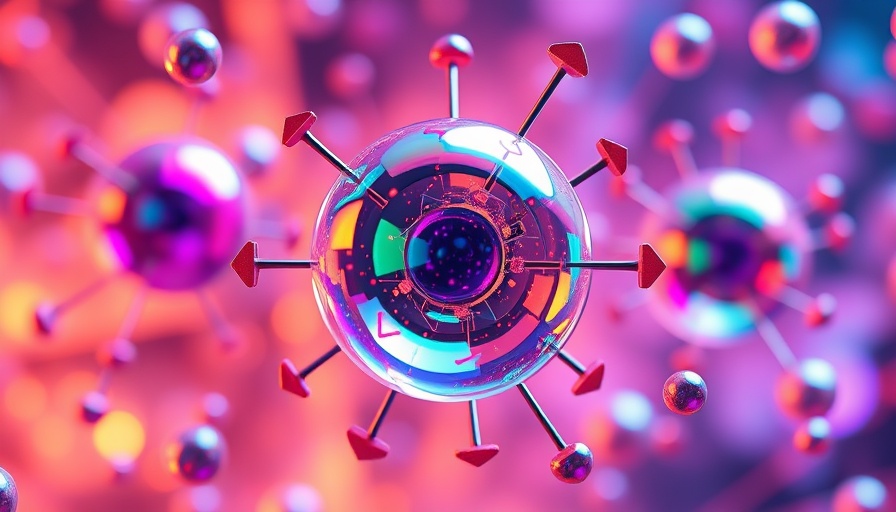
Shattering Barriers: A Leap Forward in Quantum Computing
Researchers at the University of the Witwatersrand, in collaboration with Huzhou University in China, have made a groundbreaking discovery in the field of quantum computing. Their recent study, published in Nature Communications, explores a method to shield quantum information from detrimental environmental noise, which has long posed challenges to the development of stable quantum technologies. This research could substantially enhance the reliability of quantum computers and networks, leading to faster and more secure technology accessible to a wider audience.
Why This Breakthrough Matters
Quantum technology is on the brink of changing various sectors, from healthcare to communication. The ability to maintain quantum states amidst environmental disruptions could revolutionize medical imaging methods and improve AI-driven diagnostics, ultimately leading to enhanced healthcare solutions. With stronger data security mechanisms in place, quantum networks can offer ultra-secure communication channels, crucial for protecting sensitive personal and financial information from increasing cyber threats.
Understanding Quantum Entanglement and Its Challenges
At the heart of this research lies the principle of quantum entanglement, which Einstein famously critiqued as "spooky action at a distance." Entangled particles can communicate instantaneously regardless of distance, but their delicate nature makes them susceptible to various disturbances, including background noise and stray photons. The Wits team has ingeniously manipulated the quantum wave function—a mathematical framework that encapsulates the myriad states of a quantum system—to focus on preserving vital quantum information, even during entanglement breakdowns.
Harnessing Topology: A New Dimension of Information Encoding
Professor Andrew Forbes from the Wits School of Physics highlighted that topology, a branch of mathematics concerning properties that remain invariant through deformation, plays a crucial role in this innovation. By engineering quantum states with specific topological features, the researchers discovered a way to code information that proves resilient against noise. This represents a significant step towards developing practical, reliable quantum systems that could reshape the future of technology.
What Lies Ahead?
The implications of this research extend far beyond theoretical advancements. As we steer towards a future ripe with quantum technologies, the ability to shield quantum information effectively suggests a pivot toward applications that can significantly alter our daily lives. From enhanced computing power to more secure communication, the potential for integrating these breakthroughs into everyday technology is vast, presenting society with thrilling possibilities.
As this research evolves, stakeholders in various industries should anticipate the transformative impact of these findings. With quantum computing poised to create more resilient systems, it's essential to stay informed about ongoing developments in the field.
 Add Row
Add Row  Add
Add 




Write A Comment